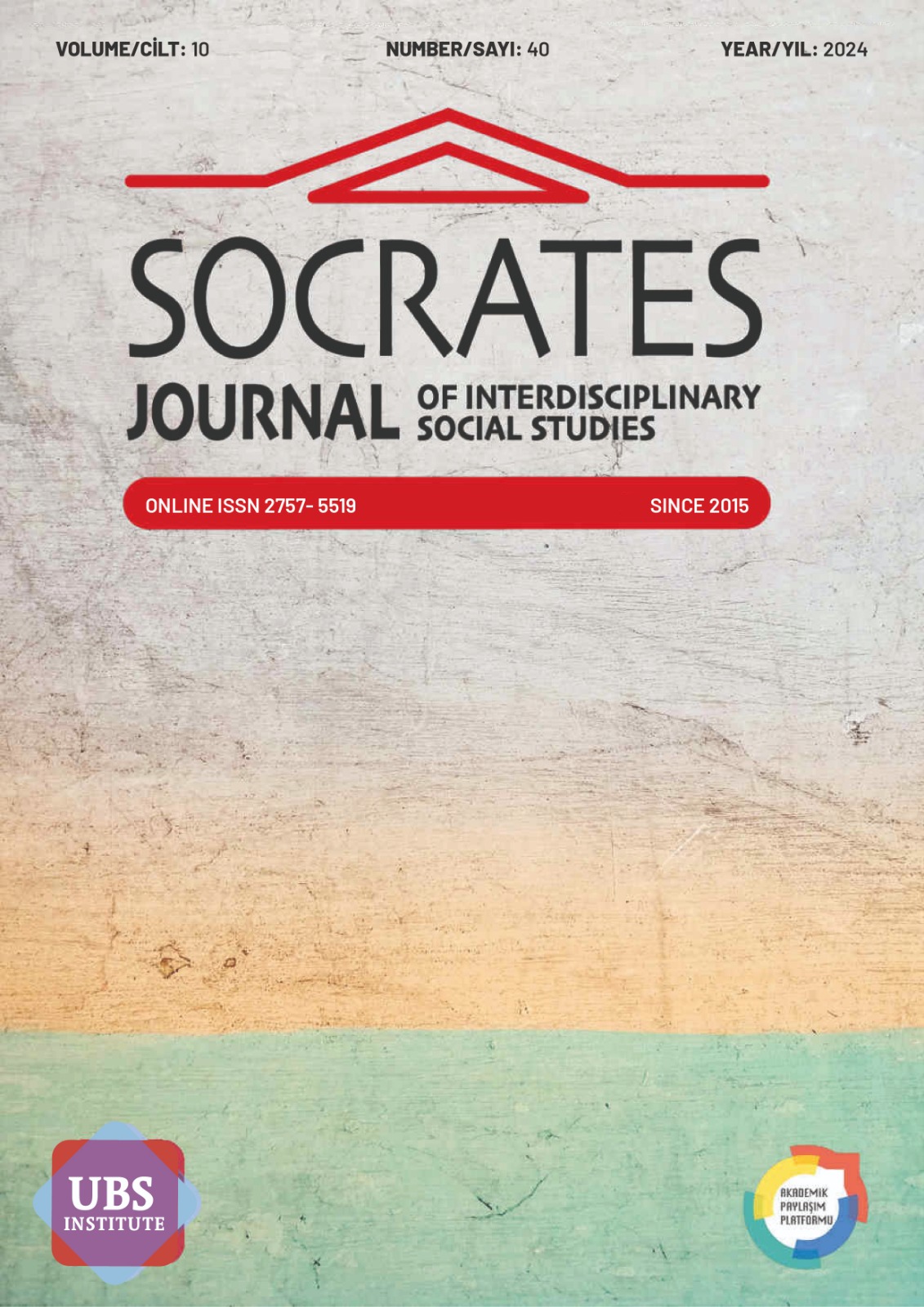INVESTIGATION OF TEACHERS' SELF-EFFICACY BELIEFS ACCORDING TO VARIOUS VARIABLES
ÖĞRETMENLERİN ÖZ YETERLİK İNANÇLARININ ÇEŞİTLİ DEĞİŞKENLERE GÖRE İNCELENMESİ
DOI:
https://doi.org/10.5281/zenodo.10946212Keywords:
Teacher, Self-Efficacy, Self-Efficacy BeliefAbstract
The aim of the study was to determine the differentiation of teachers' self-efficacy beliefs according to various variables in different school types. In line with the determined purpose, scanning model was preferred as the method in the research. The population of the research consists of teachers in schools affiliated with basic education working in different branches and school types in the 2023-2024 academic year. The sample of the research consists of 439 teachers randomly selected from among the teachers working in these schools. In the study, "Teacher Self-Efficacy Scale" was used as a data collection tool to reveal teachers' self-efficacy beliefs. The scale is the Teacher Self-Efficacy Scale Short Form developed by Tschannen-Moran and Woolfolk Hoy (2001), adapted into Turkish by Erdoğan (2023). In the study, it was determined that a significant difference between teachers' self-efficacy beliefs according to gender variable was in favor of male teachers. It was determined that there was a significant difference between teachers' self-efficacy beliefs according to the variables of branch, professional seniority and type of school where they work. According to the results, it can be evaluated that the self-efficacy beliefs of the teachers participating in the research are not similar to the demographic variables of the research: gender, branch, professional seniority and type of school where they work.
References
Aşkar, P. & Umay, A. (2001). İlköğretim matematik öğretmenliği öğrencilerinin bilgisayarla ilgili öz yeterlik algısı. Hacettepe Üniversitesi Eğitim Fakültesi Dergisi, 21, 1-8.
Baloğlu, N. & Karadağ, E. (2008). Öğretmen yetkinliğinin tarihsel gelişimi ve Ohio öğretmen yetkinlik ölçeği: Türk kültürüne uyarlama, dil geçerliği ve faktör yapısının incelenmesi. Kuram ve Uygulamada Eğitim Yönetimi, 56(56), 571-606.
Bandura, A. (1997). Self-efficacy: The exercise of control. Freeman.
Betoret, F. D. (2006). Stressors, self-efficacy, coping resources, and burnout among secondary school teachers in Spain. Educational Psychology, 26(4), 519-539. https://doi.org/10.1080/01443410500342492
Bong, M., & Skaalvik, E. M. (2003). Academic self-concept and self-efficacy: How different are they really? Educational Psychology Review, 15(1), 1–40. https://doi.org/10.1023/A:1021302408382
Burley, W. W., Hall, B. W., Villeme, M. G., & Brockmeier, L. L. (1991, April). A path analysis of the mediating role of efficacy in first-year teachers’ experiences, reactions, and plans. In annual meeting of the American Educational Research Association.
Büyüköztürk, Ş., Kılıç Çakmak, E., Akgün, Ö.E., Karadeniz, Ş. & Demirel, F. (2014). Bilimsel araştırma yöntemleri (17. Baskı). Pegem Akademi.
Coladarci, T. (1992). Teachers’ sense of efficacy and commitment to teaching. Journal of Experimental Education, 60, 323-337.
Creswell, J. W. (2017). Karma yöntem araştırmalarına giriş. (Çeviri Ed: M. Özçelik). Pegem Akademi.
Erdoğan, U. (2023). Öğretmen öz yeterliği ölçeği kısa formu’nun Türkçeye uyarlanması ve ölçme değişmezliğinin incelenmesi. İnönü Üniversitesi Eğitim Fakültesi Dergisi, 24(2), 1129-1154.
Geijsel, F. P., Sleegers, P. J., Stoel, R. D., & Krüger, M. L. (2009). The effect of teacher psychological and school organizational and leadership factors on teachers' professional learning in Dutch schools. The Elementary School Journal, 109(4), 406-427.
Gurvitch, R., & Metzler, M. W. (2009). The effects of laboratory-based and field-based practicum experience on pre-service teachers’ self-efficacy. Teaching and Teacher Education, 25(3), 437-443. doi: 10.1016/j.tate.2008.08.006
Maddux, J. E. (2000). Self-Efficacy: The power of believing you can: Handbook of positive psychology. Oxford University Press.
MEB. (2017). Öğretmen yeterlilikleri. MEB Yayınları.
Pajares, M. F. (1992). Teachers’ beliefs and educational research: cleaning up a messy construct. Review of Educational Research, 62(3), 307-332.
Ross, J. A. (1992). Teacher efficacy and the effect of coaching on student achievement. Canadian Journal of Education, 17(1), 51-65.
Schunk, D. H., & Usher, E. L. (2012). Social cognitive theory and motivation. In R. M. Ryan (Ed.), The Oxford handbook of human motivation (pp. 13-27). Oxford University Press.
Senemoğlu, N. (2007). Gelişim öğrenme ve öğretim: Kuramdan uygulamaya. Gönül Yayıncılık.
Skaalvik, E. M., & Skaalvik, S. (2010). Teacher self-efficacy and teacher burnout: A study of relations. Teaching and Teacher Education, 26, 1059-1069.
Tschannen-Moran, M., & Woolfolk Hoy, A. (2001). Teacher efficacy: Capturing and elusive construct. Teaching and Teacher Education, 17, 783-805.
Tschannen-Moran, M., Woolfolk Hoy, A., & Hoy, W. K. (1998). Teacher Efficacy: Its Meaning and Measure. Review of Educational Research, 68(2), 202-248.
Tschannen-Moran, M., Woolfolk-Hoy, A., & Hoy, W. K. (1998). Teacher efficacy: Its meaning and measure. Review of Educational Research, 68, 202-248.
Downloads
Published
How to Cite
Issue
Section
License
Copyright (c) 2024 Socrates Journal of Interdisciplinary Social Studies

This work is licensed under a Creative Commons Attribution 4.0 International License.


